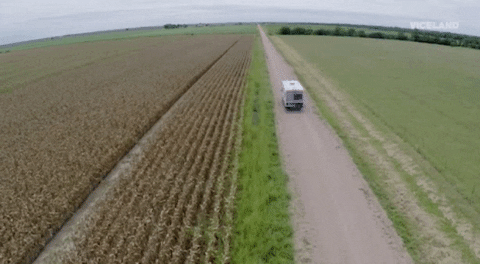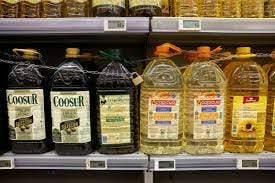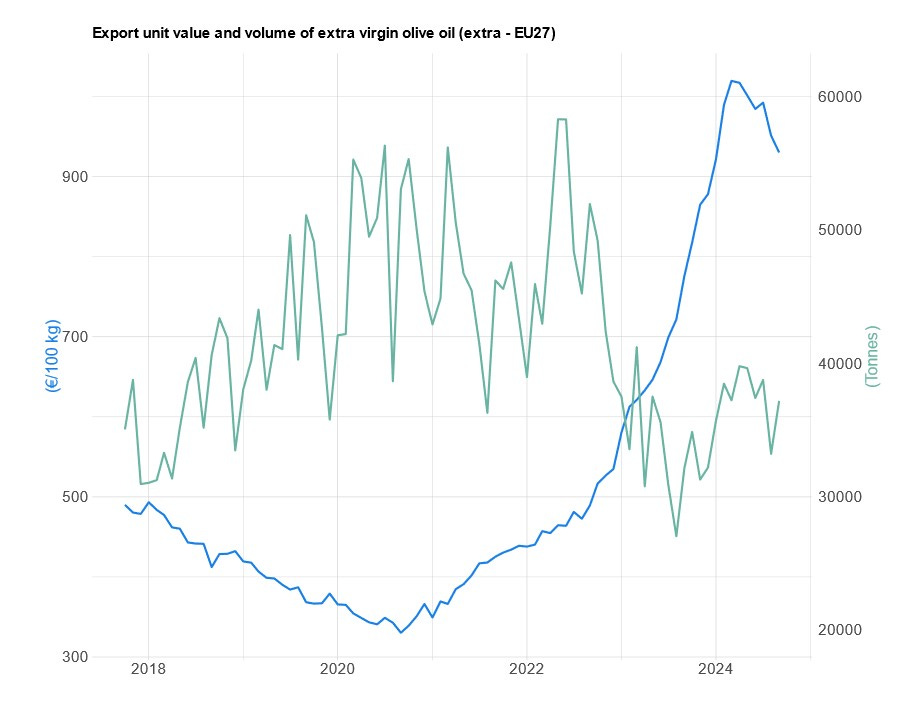A Spanish heist
A hard to believe story about how climate change has created a new opportunity for criminal gangs in Spain
It’s October 2024 and we are in the picturesque countryside of Zafra in Spain. Mateo was driving his truck down his usual route, whistling as the wind blew into his face. It was still early spring and the air was cool.
A few friends had been warning him to be more careful given what they had been hearing but he didn’t think much of it. He had been driving the same truck down the same route with the same cargo for years.
Then, out of nowhere a jeep sped onto the highway from a lane and stopped right in front of his truck. He had to brake hard and almost banged his head on the wheel. Before he could figure what was happening three armed men with covered faces got out of the jeep, yanked him out of his seat and shoved him into the jeep.
Then one of them took the truck away while the other two drove him in the jeep in the opposite direction. They blindfolded him and dropped him off in the middle of a desolate road 3 hours away. He couldn’t fathom what was happening or why someone would want his truck that badly.
The truck was found the next day. Otherwise intact but with the cargo missing.
Mateo wasn’t carrying Cocaine (Remember Breaking bad). He wasn’t carrying some famous painting. He wasn’t carrying expensive cars. He wasn’t carrying gold or silver.
He was carrying something you’d find casually lying around in most Spanish kitchens, and quite a few non Spanish ones as well these days.
He was carrying Olive oil. Also called ‘Liquid gold. Now we know why.
This was a slightly fictionalised account based on actual events.
Olive oil is a new target for criminal gangs in Spain. It’s not just tankers carrying oil that have been looted. There have been many instances of thieves entering olive tree plantations at night to remove olives or simply cut off branches that are laden with olives. This is impacting farmers who are losing as much as half of the harvest to these thefts, that also leave the trees heavily damaged affecting future yields. In some cases thieves have uprooted entire trees, some of which are hundreds of years old. Supermarkets are beginning to keep olive oil under lock and key, as cases of petty crimes have risen.
So why are criminal gangs suddenly interested in Olive oil?
This is mainly fuelled by the fact that Olive oil prices have skyrocketed in the last 3 years amidst a heavy shortage. Extra virgin Olive oil has been selling for as much as USD 14.5/ liter in supermarkets, which is almost 1.5X the price just two years back.
The tanker that was taken at gunpoint in the story we started with - the oil in it was worth 3 mn dollars.
Prices are going up as the Olive oil production saw a massive drop in the last few years. Across the world, Olive oil production that had been mostly rising from the 1990s, saw a sharp drop in 2022-23 and 2023-24. In 2023-24. Olive production fell to almost 2.4 mn tonnes, well short of the global demand of almost 3 mn tonnes. This can be consequently seen in a drop in export volumes as well.
Spain, that manufactures more than 50% of Olive oil globally, has seen a sharp decline too. In the 2022-2023 season, production dropped to 666,000 metric tonnes, less than half of the 1.49 million metric tonnes produced in 2021-2022. Although there was a modest recovery to 851,000 tonnes in 2023-2024, the figures remained well below average.
This drop in oil production is due to the lower olive yield, that can be attributed mainly to the fact that Spain experienced a prolonged drought for from 2022 to 2024 and the hottest summer ever in 2024. The region also experienced several wildfires which also damaged Olive groves. While the Olive tree is a relatively hardy tree, heatwaves, droughts and wildfires can completely kill groves which can then take years to be replanted and come back into production.
So what’s ahead?
Spain's olive oil production for the 2024–2025 season is projected to experience a significant rebound after two years of drought-induced lows. Estimates suggest a harvest between 1.26 and 1.45 million metric tons, marking a 48% to 70% increase compared to the previous season's output of approximately 853,000 tons.
This recovery is attributed to improved weather conditions, particularly an ideal winter, spring rains that have benefited olive growth and the summer expected to be relatively less warm given El nino conditions are over. This year, Spain saw an optimal level of rainfall in January and February. As a result, water reserves rebounded significantly in Spain, which has helped especially the country’s many non-irrigated groves.
While this year may be good, the climate variability that has become the norm due to long term global warming will very likely affect future yields. The droughts, heatwaves and fires that are becoming more common and intense will affect the yield and quality of the oil as well as the regions where Olive trees can be grown.
Olive oil is not alone. Climate change is impacting agricultural commodities across the world - coffee, cocoa, rice, sugar and many more.
The story of olive oil in Spain is a window into the future of food in a warming world. What once seemed abundant and ordinary — a bottle on every kitchen shelf — is now becoming precarious, vulnerable to both climate extremes and economic exploitation.
As climate change continues to reshape weather patterns and strain ecosystems, it’s not just the rare and exotic that will be at risk. Everyday staples — the oils we cook with, the beans we brew, the grains that fill our plates — are becoming frontline casualties in a changing world.
It’s time we started treating our food systems with the same seriousness we treat our energy systems — because the next global crisis might not be what fuels our cars, but what fills our plates.
Sources:
Criminal gangs exploiting the olive oil crisis in Spain | DW Documentary (DW)
Spanish supermarkets lock up olive oil as shoplifting surges (Reuters)








